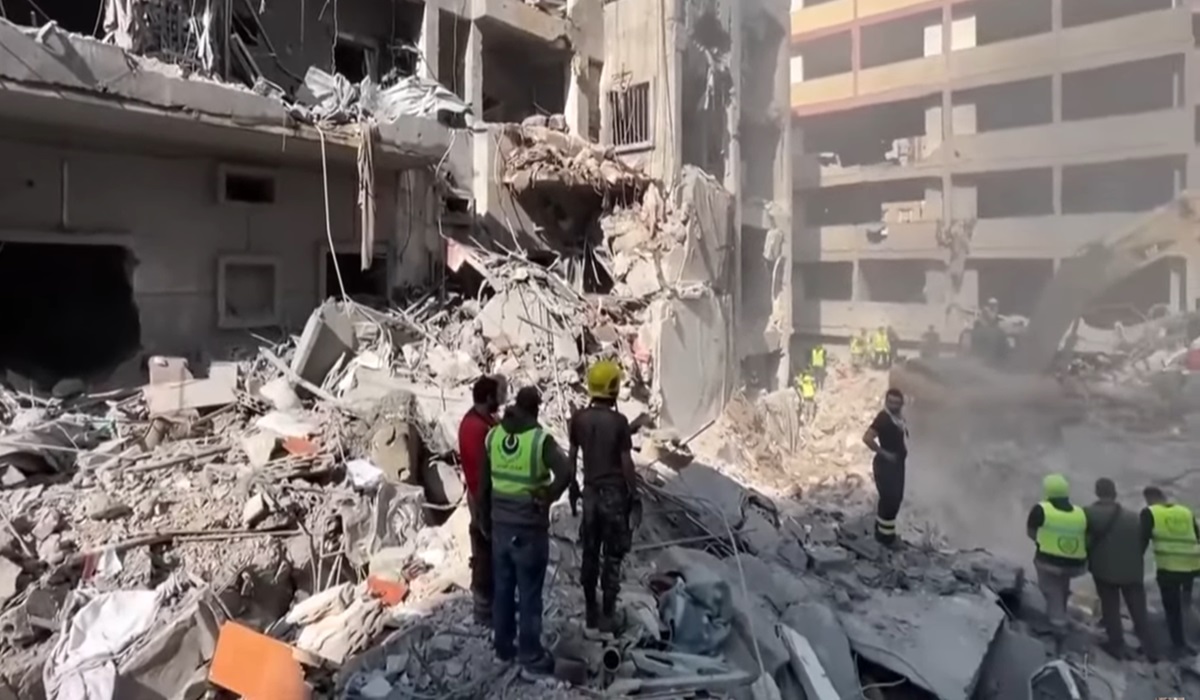Temporary Truce, Permanent Chaos: Why the Lebanon Ceasefire Won’t Last
- TDS News
- Breaking News
- November 27, 2024

The fragile ceasefire between Israel and Lebanon, announced after yet another devastating Israeli bombardment of Beirut, raises more questions than it answers. Both sides have suffered catastrophic losses, and the conditions for lasting peace remain as murky as ever. The Biden administration is attempting to frame this as a diplomatic victory, but critics argue it is nothing more than a superficial ploy to salvage credibility in a region destabilized, in no small part, by U.S. policies. Through decades of unflinching military, financial, and intelligence support to Israel, Washington has enabled the very violence it now seeks to claim it has mitigated.
The vague details of the ceasefire do little to inspire confidence. It includes a 60-day truce under which Israeli troops will withdraw from Lebanon while Hezbollah fighters are removed from south of the Litani River. But this is not a peace agreement—it is merely a pause in a cycle of violence that stretches back decades, perpetuated by political expediency and imperial hubris. Neither side is a “winner” here, except perhaps the arms manufacturers, military contractors, and geopolitical strategists who profit from endless conflict. For ordinary people, there is no victory—just rubble, grief, and the temporary reprieve of bombs no longer falling on their homes.
The humanitarian crisis in Lebanon is staggering. Families have been displaced, homes reduced to rubble, and entire communities left in ruin. In retaliation, a barrage of rockets struck Israeli territories, a grim reminder of the cyclical nature of this unending conflict. Despite Israel’s relentless campaign, Hezbollah—labeled a terrorist organization by many Western nations but recognized as a legitimate part of Lebanon’s government—remains unvanquished. No permanent peace has been achieved, and the root causes of the conflict remain unaddressed. The question looms: how long before the fragile ceasefire collapses and the violence resumes?
Jan Egeland, Secretary General of the Norwegian Refugee Council (NRC), cautiously welcomed the ceasefire while underscoring the immense challenges that remain. He spoke of the grief and trauma that displaced Lebanese families endure, many of whom have lost everything. NRC staff, some of whom have also suffered personal losses, are working tirelessly to provide aid. “The fighting may be over for now, but the humanitarian emergency is ongoing,” Egeland said, stressing the urgent need for international assistance before Lebanon’s harsh winter sets in.
Yet, even as international organizations call for immediate aid and diplomacy, the Biden administration continues to sidestep its culpability in the region’s instability. Lebanon is but one theater of a broader U.S.-enabled disaster that includes Gaza, the West Bank, and Syria, where U.S. forces maintain an illegal presence under the guise of fighting terrorism. In Gaza, Washington’s unwavering financial and military support for Israel has perpetuated decades of occupation and human suffering. At any point, the U.S. could have pressured Israel to halt its military campaigns or pursue genuine peace initiatives. Instead, it has doubled down on a policy of impunity, backed by allies such as Germany, the U.K., and Canada, who provide varying degrees of support for Israeli aggression.
This ceasefire, hailed by some as a triumph, is little more than window dressing for an outgoing administration desperate to claim success. For Biden, it is a chance to tout progress in a region his administration has largely ignored, except to funnel billions of dollars in aid to sustain Israeli military dominance. But true peace cannot be achieved through temporary ceasefires or performative diplomacy. Until the root causes of the conflict—occupation, dispossession, and systemic inequality—are addressed, these wars will continue. They are forever wars, born from the imperialist carving up of the Middle East into unnatural borders that sowed division and conflict. The international community’s failure to address these foundational injustices ensures that the region remains a chessboard for geopolitical ambitions, at the expense of millions of lives.
For now, the people of Lebanon and Gaza continue to bear the brunt of policies shaped not by concern for human rights or international law but by strategic interests and profit motives. The Biden administration’s role in perpetuating these injustices cannot be overlooked. The 60-day ceasefire may provide a temporary reprieve, but it is far from a solution. Bombs may have stopped falling, but nothing has truly changed. The question remains: how long before the cycle of violence resumes? For the countless families living under the shadow of destruction and occupation, the answer is heartbreakingly clear: not long at all.








